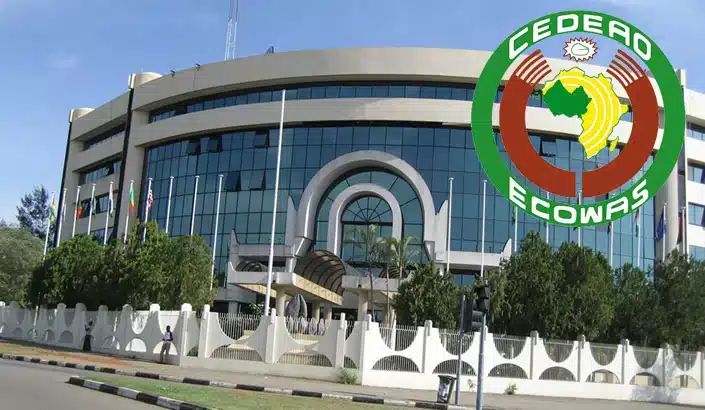Nigeria News
Nigeria Leads As ECOWAS Members Fail To Obey 150 Court Judgments

Nigeria and other countries under the Economic Community of West African States (ECOWAS) have failed to obey a total of 150 judgements passed by the bloc Court of Justice
According to Punch, the court’s registry indicated that all ECOWAS countries and some of its institutions have outstanding judgments to enforce.
The record, as of January 31, 2024 showed Nigeria topped the list with the highest number of unenforced judgments at 43, followed by the Republic of Togo with 23, and Guinea ranking third with 14.
Others are Mali with 11; the Republic of Niger has nine; Senegal, eight; Sierra Leone, seven; and Cote D’Ivoire with six.
The Gambia has yet to enforce five; Benin Republic, Liberia, and Burkina Faso have four unenforced judgments each. Ghana has three, while Cape Verde and Guinea Bissau have one each.
The ECOWAS Commission has a total of five judgments yet to be enforced.
In addition, the judgments given in the case between Petrostar Nigeria vs Blackberry Nigeria Ltd and EBID vs Cross River State have not been enforced.
On the list of decisions enforced as of January 31, 2024, a total of 34 judgments had been implemented.
Among the 34, Nigeria has a total of eight enforced judgments which included five from the Registered Trustees of Socio-Economic and Accountability Project.
In one of the cases marked: ECW/CCJ/APP/10/10,
SERAP sued the FG over the security forces’ shooting of peaceful protesters in Bundu Ama, Port Harcourt in 2009.
The ECOWAS court ruled that the Nigerian government breached its obligation to protect and respect the right to peaceful association and assembly, awarding a total of N11m in damages.
Mali has enforced four; Niger, three; The Gambia, two; Burkina Faso, Sierra Lone and Liberia have implemented judgment one each.
ECOWAS commission has implemented seven while the ECOWAS parliament has one.
Enforcement of the judgments in member states has been one of the major challenges confronting the ECOWAS Court of Justice.
The Attorney General of the Federation and the Minister of Justice, Lateef Fagbemi (SAN), recently charged ECOWAS court to refrain from issuing orders and judgments that are impossible to enforce.
He also noted that the court must pay attention to the peculiarities of countries in the regional bloc.
However, human rights lawyer, Femi Falana, (SAN), disagreed with the AGF, saying, “With respect to the Honourable Attorney-General, not all ECOWAS member states disobey the judgments of the ECOWAS Court like Nigeria.”
Falana linked the coups in some West African countries to disregard for orders from domestic and regional courts.
He said, “The hostile disposition of African states to courts is essentially the same. African governments, including Nigeria, are yet to move away from the era of military and apartheid regimes when martial law was the order of the day. The rule of law is substituted for the rule of rulers. Not only are orders of courts disregarded, but judges who rule against governments are harassed by security forces. The same attitude has been extended to regional and international courts.”
Meanwhile, the President, ECOWAS Judicial Council, Justice Olukayode Ariwoola, after a recent closed-door meeting with President Bola Tinubu at the State House, said two committees had been inaugurated to probe disobedience by member states.
He said, “We have set up two committees; one to look into the rules and the other to look into the position or the status of the enforcement of judgments of the community court.”












